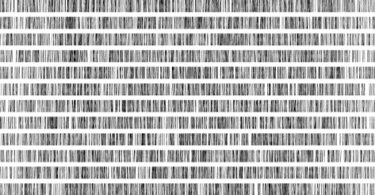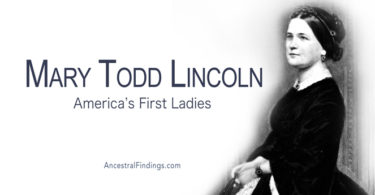DNA testing has become more popular and accessible than ever for genealogists of both the professional and hobbyist levels. Even people who aren’t interested in researching their family tree are getting DNA tests done to discover more about their health, heritage, and to connect with long-lost or previously unknown relatives. In fact, from its beginnings as a consumer product in the early 2000s, when it was prohibitively expensive for most consumers, DNA testing has now become affordable for almost everyone, and is now an industry unto itself, separate from the genealogy community, but tied to it.
In other words, you don’t have to be interested in genealogy to get your DNA tested, but if you are a genealogist, you will probably have your DNA tested. Whichever camp you fall into, you should research the various companies out there that offer testing, to determine which one best meets your needs, based on what you hope to obtain from the testing. Once you’ve decided on a company, ask yourself these three questions to determine if having your DNA tested is truly for you. Remember, while DNA testing is interesting and useful to most people, it is not a product for everyone.
1) Why Are You Getting your DNA Testing Done?
This is a really important question to ask yourself before ordering that test kit. Obviously, different people will have different reasons for doing it. Are you testing to find out more about your health history and risks? If so, what do you plan to do with the information? Will you take it to your doctor to get recommendations, or will you make lifestyle adjustments on your own, based on the results you get back?
Are you doing it to find out about your origins? If so, are you more interested in knowing about your recent ancestors and where they came from (usually within the past 500 years), or are you more intrigued by the idea of your deep ancestry (usually 1,000 or more years in the past)? Are you going to use the information to help put together a family tree, or are you just curious and want the surface information without digging more deeply into it?
Are you looking to connect with relatives who have been out of touch with you for a long time, or who you never knew? Is this for nostalgic purposes or out of curiosity, such as to learn about the way your family expanded after your grandparents or great-grandparents? Are you adopted and looking for biological relatives? If you find them, do you plan on contacting them and asking about your birth parents, or are you just interested in the biological family tree?
These are all among the most common reasons people get their DNA tested. Knowing the reason(s) you are doing it will not only help guide you to the correct company to do the testing, but it will also keep your expectations clear when the results come in. When you know why you are testing and what you hope to achieve from it, you will be far happier with your results than if you go into it without any goals in mind for it.
2) Are You Prepared to Receive Information You Might Not Like?
While most DNA test results will either be just what you expected or contain pleasant surprises, you have to prepare for the possibility of getting results that might be surprising in ways you do not like. Examples may be discovering beloved old family tales are not true (or are not exactly the way you were told growing up), discovering an illegitimacy in your family tree, discovering a criminal in your family tree, learning you have an increased risk for one or more unpleasant diseases, or even discovering one or both of your parents are not your birth parents. It happens.
A man who took a DNA test and discovered his father was not his birth father wrote a book about his discovery, called “The Stranger in My Genes.” When he and one of his brothers were tested together, the results showed they were half-brothers. Thinking it had to be a mistake, as they were all raised by the same man, they had their other siblings test; all the siblings had the same father, except the man who wrote the book. His was different.
Thinking his sainted mother could never have had an affair, he was reluctant to talk to her about it, and despite all the siblings testing, he still thought it must be a mistake. When he eventually brought it up with her, it turned out she did have an affair and was never sure about his biological father. She thought it could have been her husband, but the results of the DNA test let her know it was her affair partner. She refused to talk about it further but did give her blessing to him to write the book. This is just one example of the kind of thing you might discover in a DNA test.
No matter how sure you are of your health and heritage, you might discover something you didn’t know that you won’t like. Are you prepared to confront it and live with the knowledge? Don’t test if the answer is “no.”
3) Are You Willing to Be Contacted by Your Genetic Matches?
Most DNA testing companies will show you the people who have also tested with their company who are close genetic matches to you. You will then be able to contact them through the testing company’s website if you choose. However, remember that these matches can also contact you. If you are not testing to meet genetic relatives and correspond with them (or meet them, in some instances), make sure you put your settings on “private” with the testing company, or you will be contacted by matches looking for more information on their family tree, of which you are apart. Some members of these testing sites can be quite persistent in contacting you, even if you don’t respond at first, so going private is a must if you don’t intend to talk to anyone about genealogy and family history on the site.




